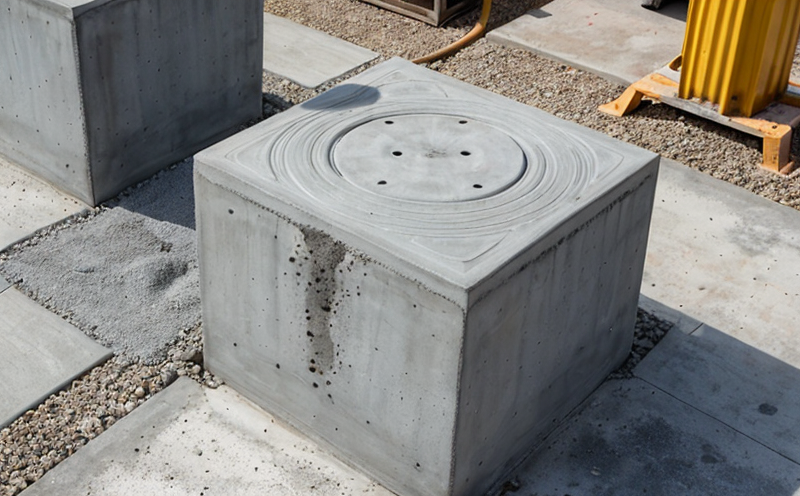ISO 679 – Mortar Compressive Strength Verification
The ISO 679 standard provides a comprehensive framework for the determination of compressive strength of mortar used in construction. This service is crucial for ensuring that the mortar meets the specified performance requirements set by international standards, which are critical for the durability and integrity of building structures.
Compressive strength verification ensures that the mortar can withstand the loads it will encounter during its operational life. This is particularly important for buildings, bridges, tunnels, and other infrastructure projects where structural stability is paramount. In the context of Building & Infrastructure Testing, this service plays a pivotal role in ensuring compliance with building codes and regulations.
The ISO 679 standard applies to mortars composed of hydraulic binders mixed with fine aggregates, water, and other admixtures. The test method is designed to evaluate the compressive strength of mortar cubes prepared from these materials. This service supports Concrete & Cement Testing by providing a standardized approach to verify the quality of mortars used in construction.
The process involves preparing standard specimens that are cured under controlled conditions and then subjected to compression tests. The results provide critical data on the strength properties of the mortar, which can be compared against design specifications or regulatory requirements.
For quality managers and compliance officers, this service ensures that building materials meet specified performance criteria, thereby reducing the risk of structural failures and ensuring long-term durability. For R&D engineers, it provides valuable insights into material behavior under load conditions. And for procurement professionals, it helps in selecting suppliers who deliver high-quality construction materials.
The ISO 679 standard is widely recognized and accepted across the globe, making this service particularly useful for international projects where conformity to global standards is essential. The test results are also crucial for insurance purposes, as they provide a reliable measure of material quality.
Compressive strength verification using ISO 679 helps in identifying any inconsistencies or variations in mortar quality that could impact the overall structural integrity of a project. By ensuring consistency and reliability, this service supports sustainable construction practices by promoting the use of high-quality materials.
Applied Standards
| Standard Number | Description |
|---|---|
| ISO 679:1984 | Determination of compressive strength of mortar cubes |
Benefits
- Ensures compliance with international standards for mortar quality.
- Provides reliable data on the compressive strength of mortars used in construction.
- Serves as a key performance indicator for structural integrity and durability.
- Aids in selecting suppliers who deliver high-quality materials.
- Supports sustainable construction practices by promoting consistent material quality.
- Reduces risks associated with structural failures due to substandard mortar.
- Facilitates insurance claims by providing reliable evidence of material integrity.
Quality and Reliability Assurance
The ISO 679 service is integral to the quality assurance process in building and infrastructure projects. By verifying the compressive strength of mortar cubes, this service ensures that construction materials meet specified performance criteria. This not only enhances the structural integrity of buildings but also contributes to the long-term sustainability of infrastructure.
Quality managers can use the test results from ISO 679 to identify any inconsistencies in material quality and make informed decisions about procurement and project management. Compliance officers rely on these tests to ensure that all materials used in construction projects adhere to regulatory requirements, thereby minimizing legal risks.
R&D engineers benefit from this service by gaining insights into the behavior of mortars under load conditions. This information can be used to improve material formulations and enhance product performance. For procurement professionals, ISO 679 provides a standardized approach for evaluating suppliers' capabilities and ensuring that they meet quality standards.
The service also supports sustainable construction practices by promoting the use of high-quality materials. By reducing risks associated with substandard mortar, this ensures that buildings are constructed to last, thereby minimizing maintenance costs over time. Additionally, reliable test results facilitate insurance claims, providing a robust basis for financial security in case of structural failures.





